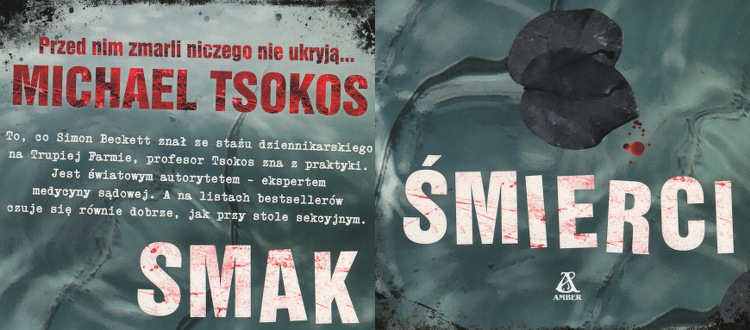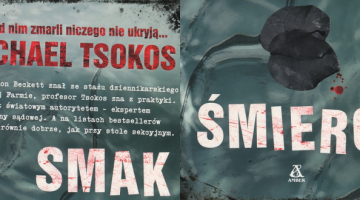What is the difference between a psychopath and a sociopath? How far can a sick person or more exactly his or her inner self, that we so easily refer to as „the beast”, go? What allows a person to be empathic and not to think about punishment adequate to another’s deed? And where is the thin line between literature and the indication that just a little bit of cunning is sufficient to being a „beast” still remain not only innocent, but also immortalized in the pages of a detective story?
The Taste of Death is a story based on real cases, which the German forensic expert dealing with the most extraordinary criminal cases meets in his work. It does not seem strange, then, that reading The Taste of Death we can radically change our own ideas about the directions the evil leading to crime follows, and about the person who commits it. The reality exposes the imperfection of our knowledge – victimology is still based on the studying of the life of the victim – but in The Taste of Death we have to deal with an unimaginable evil and its victim is not only random, but also the place where the crime is done is simply “the issue of lottery”. The years of the development of the sciences, concerning the phenomena of social pathology, are totally useless here. About the fact that the murder takes place in Berlin decides only the price of the air ticket. The typologies of victims and perpetrators turn out to be unhelpful… Finally the unconventional efforts of the pathologist, supported by personal motives, allow us to learn the truth. But this discovery is primarily a matter of personal commitment and outmaneuvering the rigid procedures of criminal proceedings. What is certain is that to understand a criminal action, you have to not so much „empathize” with „the beast” but follow its instincts. This process, however, too often happens too late, no matter whether by a few days or a few minutes.
Tsokos is undeniably a famous specialist, but maybe he should have remained faithful to his profession, instead of uncovering weak points of the work of criminologists with whom he met in his career. The author admits – „just such cases give us sleepless nights and allow murderers to walk the streets,” so, is it guaranteed that the fictional „beast” will not find a more intelligent follower who will draw hideous conclusions from reading this book? This doubt could turn into a long and difficult discussion. On the other hand, the drastic descriptions of cruelty provoking nausea mixed with melodramatic threads from the memory of the hero makes The Taste of Death a kitsch of poor quality. Tsokos tinges a terrifying evil with heavily hackneyed gimmicks for easy emotions. He is a forensic expert but at the same time the kitschy follower of tasteless sensational literature.
The basic knowledge in the field of victimology and the reading of hundreds of detective stories and thrillers are not enough to evaluate this book without fear. The Taste of Death sneaks away from all conventions and all rules, provoking a lot of questions and doubts.
Joanna Roś







